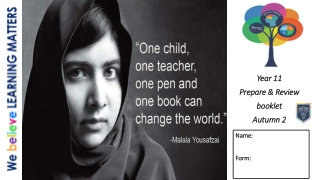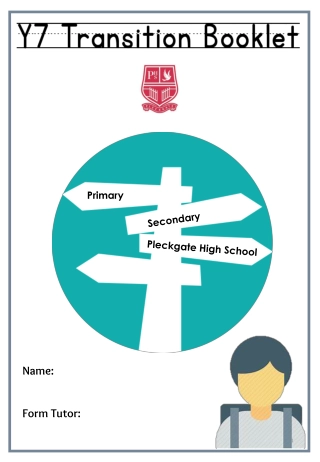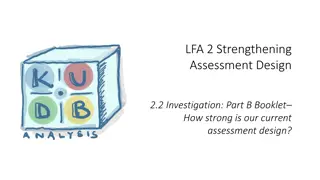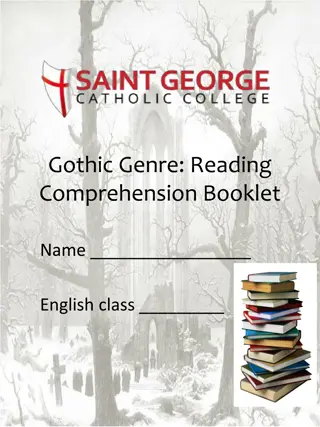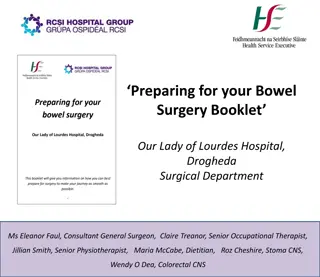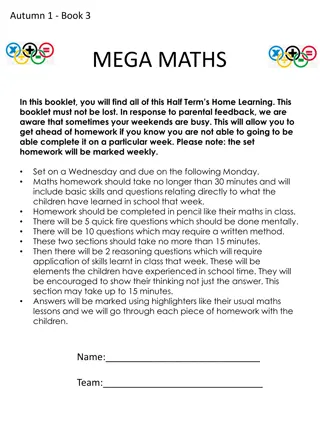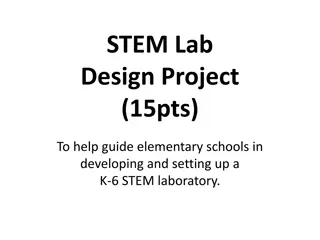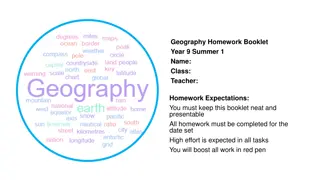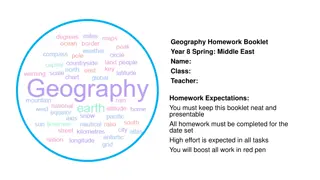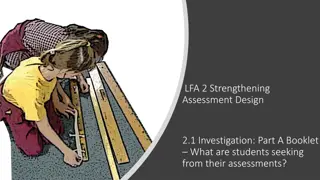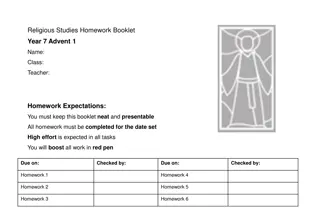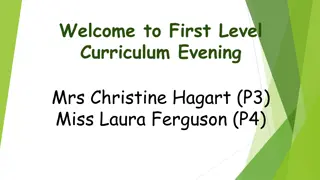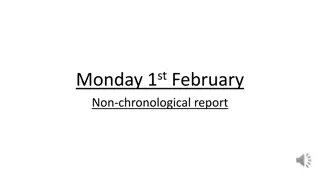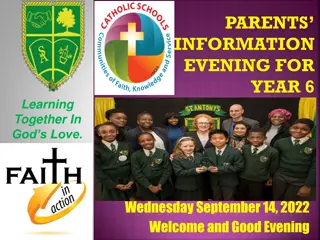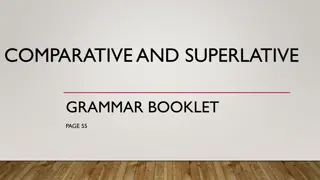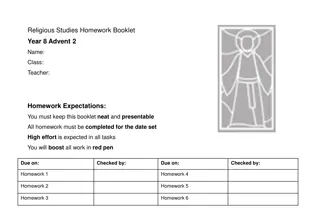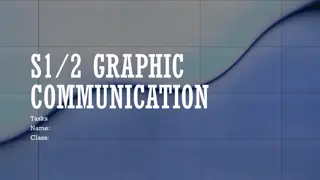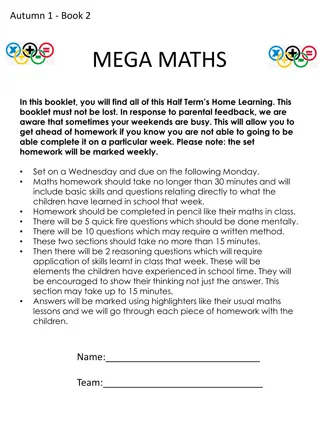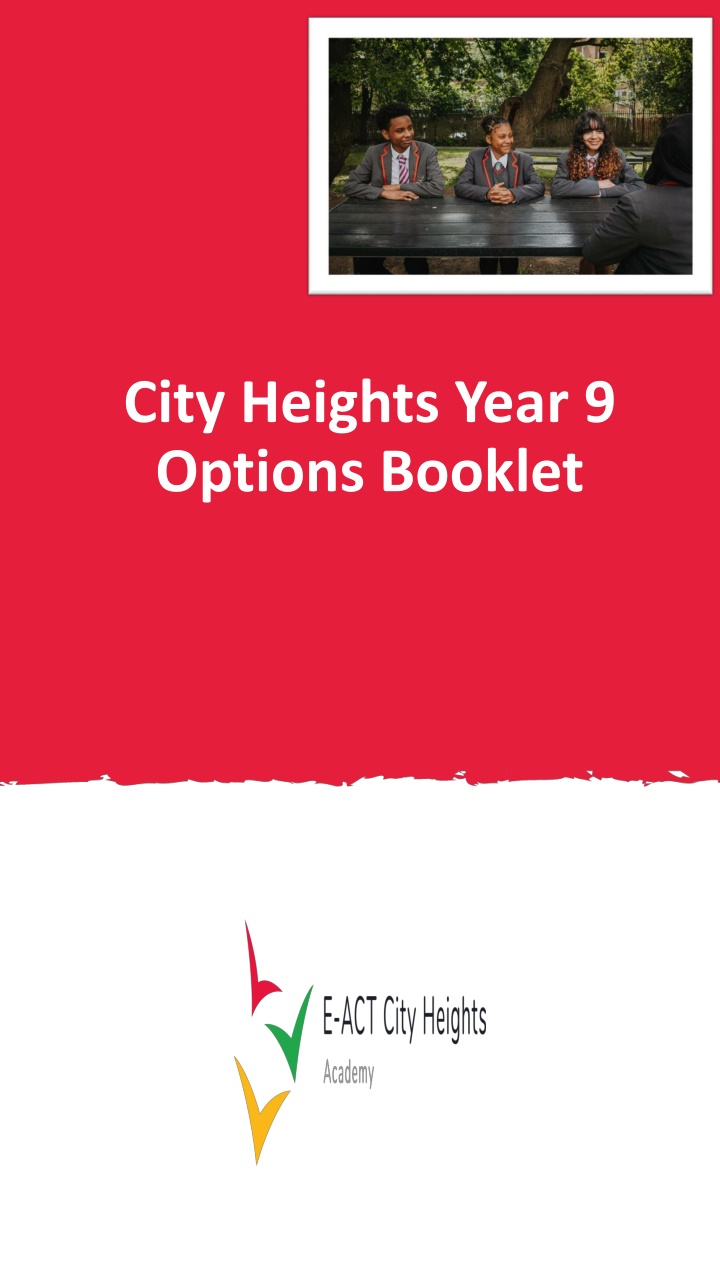
Choosing GCSE Options at City Heights Academy
"Navigate through the City Heights Year 9 Options Booklet to make informed decisions for your GCSE subjects. The Headteacher's letter emphasizes the significance of selecting the right courses for your future success. Get valuable insights and guidance on choosing the best options tailored to your strengths and aspirations at E-ACT CITY HEIGHTS ACADEMY."
Download Presentation

Please find below an Image/Link to download the presentation.
The content on the website is provided AS IS for your information and personal use only. It may not be sold, licensed, or shared on other websites without obtaining consent from the author. If you encounter any issues during the download, it is possible that the publisher has removed the file from their server.
You are allowed to download the files provided on this website for personal or commercial use, subject to the condition that they are used lawfully. All files are the property of their respective owners.
The content on the website is provided AS IS for your information and personal use only. It may not be sold, licensed, or shared on other websites without obtaining consent from the author.
E N D
Presentation Transcript
City Heights Year 9 Options Booklet
Contents Contents Contents Contents Page Letter from the Principal How to use this booklet What to consider when choosing your options National Picture The Options Timeline 2024-25 Careers Guidance Overview of Subjects Core subjects: Option Subjects Page Page 3 4 4 5 6 7 8 9 15 E-ACT CITY HEIGHTS ACADEMY 2
Headteachers letter Headteachers letter Dear Students, Parents and Carers Welcome to the beginning of the next chapter of your journey at City Heights Academy. There are important decisions to be made by you and your parents over the upcoming weeks. This booklet is designed to help you to choose the courses you will study in Years 10 and 11, to ensure you make the right choices and achieve the best possible results in all subjects by the end of Year 11. Please read the booklet very carefully. The next two school years are a very important part of your education. There are many people you can ask to help you with this, including your parents, teachers and staff at City Heights. By making the right decisions now, it will ensure that you enjoy your time and achieve the best results you can. Your success in Year 11 will pave the way for the next steps in your education at the age of 16. There are a number of things you should consider when making these choices. It might be that you have a good idea of what you want to study further, or what kind of job you want to do. If so, this should be mentioned when discussing plans with our staff, so that we can tailor our advice accordingly. Above all, the decisions should be made in your best interest, balancing those subjects that are going to provide a wide range of opportunities further down the line of education and employment, with those that you most enjoy and have a particular ability in. Decisions should certainly not be made because of what friends are doing or as a result of guessing who might be teaching the course for the next two years. Please read through this booklet, listen to the information from subject leaders, remember that your Form Tutor, Head of Year and teachers are all here to help. It is important to make the correct choice as it is very difficult to make changes once Year 10 gets underway, every single lesson counts! At City Heights, we want you to do well, like the thousands of successful students who have gone before you. We hope that you will leave the school feeling proud of your achievements and move on to the courses, training and careers that will enable you to realise your dreams, whatever they may be. I can assure you that all the staff are looking forward to working with you to help you achieve your potential. Yours faithfully Marvin Charles Headteacher Headteacher E-ACT CITY HEIGHTS ACADEMY 3
How to use this booklet How to use this booklet Studying a range of subjects at GCSE is useful to allow you to have a wider range of options for later study at college and career choices. This booklet is designed to help you in making decisions that are right for you. There is some important information at the front few pages to help you, including: the national picture what to consider when choosing your options looking towards your future career starts now where you can get careers guidance where to get further advice Pages 15 32 are details about every option subject on offer. Please look at how subjects are assessed, this should roughly match your strengths when selecting a subject. All options will be submitted online. You can submit your application at any time after careful consideration. Please ensure that your application is submitted by on 18th December 2024 What to consider when choosing your What to consider when choosing your options options You should: You should: Choose subjects you are interested in, that you enjoy and will be good at keep a broad range in your choices. Research any future careers and requirements before choosing. You should not: Choose a subject because you think it might be easy very few are when you study them for examination! You should not: You should not: Choose a subject because your friend is you may end up in different groups anyway. Choose a subject because you like the teachers they may not be your teachers next year. E-ACT CITY HEIGHTS ACADEMY 4
The The National National Picture Picture You will know the changes to GCSE courses, how students successes are measured and government changes to the examination processes. Our options process and KS4 courses are designed to ensure that all of our students are ready to compete in the national and global education and job market when they leave City Heights. Here is a summary of the key points to consider and how they affect our Year 9s: The The English English Baccalaureate Baccalaureate This is not an individual qualification but the name given to a group of GCSE qualifications. To achieve the English Baccalaureate students must achieve grades 9 5 in: English, English Literature, Maths, Combined or Triple Science, a modern foreign language and either History or Geography. The majority of students in Year 10 next year will study the subjects required to gain the English Baccalaureate. All students considering university, even as a possibility, take this pathway. Assessment by terminal exam Assessment by terminal exam In the majority (not all) of subjects, coursework and controlled assessment have been reduced/phased out. Therefore, in subjects with no coursework, students will be assessed solely on their performance in the final exams at the end of Year 11. This requires long term memory recall and in order to prepare our students for this, we will begin to use exam style questions and assessments from the first term of Year 10 so that by the time they reach the final exams students have the skills and knowledge to succeed with this method of assessment. Number grades Number grades All GCSE exams will be awarded using number grades, where 9 is the highest grade and 1 is the lowest. In Vocational qualifications, a Level 2 pass is equivalent to a GCSE grade 4. These courses will use four Level 2 (GCSE equivalent) pass grades: Distinction*, Distinction, Merit and Pass. Some vocational qualifications also have the options of a level 1 pass if a student does not reach the level 2 pass. Development of the Whole Child Development of the Whole Child Whilst we focus on academic progress, we recognise the importance of extracurricular activities. There is a wide range of opportunities on offer and we expect all students to participate in something of their liking. We have planned a number of opportunities that will help students develop their social and problem-solving skills and to become global citizens. These opportunities include but not limited to A wide range of sporting events, numeracy (Maths challenges) STEM club, leadership roles Careers and Enrichments lesson 1:1 Meetings with a Careers advisor Work experience provision: we are working closely with external providers to be able to offer work experience opportunities. E-ACT CITY HEIGHTS ACADEMY 5
The Options Process Timeline Date Event Detail Yr9 Options Information Evening An Opportunity for parents and students ask questions about the process. 5th Dec Subject Interest Selection 18th Dec Completion of Options Form Finalised Options Parents receive Students finalised options June 2025 for KS4 July 2025 Options forms close No further changes to the process may be submitted There are two pathways students can take for their GCSE Options this will determine which subjects they can choose. EBACC Pathway EBACC Pathway If your child has been directed the EBACC Path EBACC Path way they will be required to take Core Core English, Maths & Science Options Options 1 Language, 1 Humanities subject and 2 additional options ASPIRE Pathway ASPIRE Pathway If your child has been directed to the Aspire Pathway Aspire Pathway they will be require to take Core Core English, Maths & Science Options Options 1 Language or 1 Humanities subject and 3 additional options E-ACT CITY HEIGHTS ACADEMY 6
Careers Guidance It is important for students to consider their path for the future when choosing their examination subjects. Some students may have a definite career in mind, others may just be at the beginning stages of considering likes/dislikes. Our curriculum offer enables students to follow a balanced and wide curriculum and students can choose to specialise later when they enter further education. We support students on this journey and advise you on how to research, what post 16 qualifications will be needed and how to apply for them. Students can access careers guidance in the following ways: Our Careers lessons are designed to guide students through the entire application process from how to write a CV to preparing for interviews. Visit our Learning Resource Centre. It has a careers section containing a wide range of information about different jobs and careers. Meetings with an independent Careers Advisor organised by Mr Trenchfield, our Careers Lead, to talk about particular careers and the best pathway towards them. Using a range of online resources which allows students to identify their preferred careers and then research the careers it suggests in more depth. There will also be links to further education and students can search what colleges offer the course required to move forward. E-ACT CITY HEIGHTS ACADEMY 7
Overview of Subjects The The Core Core Curriculum Curriculum and and Optional Optional Our Key Stage 4 curriculum is designed to enable us to offer a broad and balanced programme that encourages creativity while adhering to governmental performance measures like Progress 8, Attainment 8, and the EBACC. The Core Curriculum enables all students to study the following subjects: English Language English Literature Mathematics Science (Combine or Separate Sciences) Physical Education - this is practical and there is no qualification Option subjects are studied in addition to the compulsory. If students are on the EBACC Pathway this will consist of 1 language and 1 Humanities Subject and 2 open subjects. If Students have been directed to the Aspire pathway this will consist of 1 language or 1 Humanities Subject and 3 open subjects. The following pages detail course overviews of the option subjects that students can select from Core Core: : English Maths Combined Science Triple Science Options Options: : Art Citizenship Digital Information Technology Drama Enterprise French Geography Humanities Health & Social Care History - Humanities Hospitality & Catering Media Portuguese Religious Education Sociology Sport Spanish Statistics E-ACT CITY HEIGHTS ACADEMY 8
ENGLISH LANGUAGE COURSE OVERVIEW Why is English important? Why is English important? GCSE English Language is an important foundation for many of the courses you may take in employment or further education, and a requirement for many university courses. It is a core subject, which helps you to develop your powers of self- expression and improve your reading and writing. It is a qualification essential for your future school and university studies, but it is also a skill you will make use of in all aspects of your life. GCSE English Language is designed to develop and enhance personal skills of reading, writing, speaking and listening, and to encourage learners to be inspired, moved and changed by following a broad, coherent, satisfying and worthwhile course of study. It will prepare you to make informed decisions about further learning opportunities and career choices and to use language to participate effectively in society and employment. What is involved in the English course? What is involved in the English course? GCSE English Language covers a wide range of basic language knowledge and skills. It will allow you to develop a good understanding of a wide range of texts from the 19th, 20th and 21st centuries, including literature and literary non-fiction as well as other writing such as reviews and journalism. You will have the opportunity to read and evaluate these texts critically and make comparisons between them, as well as summarising and synthesising information or ideas. How will you be assessed? How will you be assessed? The course requires you to sit two exam papers. The first is a Creative Writing and Reading exam. Paper 2 explores the Writer s viewpoints and perspectives. You will also sit a Spoken Language Component which involves an independent presentation which is videoed and submitted to the exam board. Careers include Careers include law, teaching, lexicography, journalism, Public Relations, marketing, and job roles within the media. How do I find out more? How do I find out more? You can visit the AQA GCSE English Language specification, which can be found here: https://www.aqa.org.uk/subjects/english/gcse/english-language-8700 Other useful websites include: https://www.bbc.co.uk/bitesize/examspecs/zcbchv4 STATISTICS Mr Davids Vernon.Davids@chea.e-act.org.uk E-ACT CITY HEIGHTS ACADEMY 10
ENGLISH LITERATURE COURSE OVERVIEW Why is English Literature important? Why is English Literature important? GCSE English Literature is important in everyday life because it connects individuals with larger truths and ideas in a society. Literature creates a way for people to record their thoughts and experiences in a way that is accessible to others, through fictionalized accounts of the experience. What is involved in the English Literature course? What is involved in the English Literature course? This is a core subject which all students are expected to study at GCSE level. As part of this course, you will read the following core texts: An Inspector Calls by JB Priestley Macbeth by William Shakespeare A Christmas Carol by Charles Dickens Power and conflict poetry anthology (provided by AQA) This course allows you to access and develop a wide range of basic language knowledge and skills. These include understanding a word, phrase or sentence in context, exploring aspects of plot, characterisation, events and settings, and distinguishing between what is stated explicitly and what is implied.. You will be expected to understand writers social, historical, and cultural contexts and use this to make informed personalised responses that derives from analysis and evaluation of the text. You will be able to analyse and evaluate how language, structure, form and presentation contribute to quality and impact, as well as using linguistic and literary terminology for such evaluation. How will you be assessed? How will you be assessed? You will sit two exam papers. Paper 1 Paper 1 focuses on Macbeth and A Christmas Carol. You will receive an extract and will need to make links to the wider text. Paper 2 Paper 2 involves you writing an essay response to An Inspector Calls, as well as writing a response to two of the conflict poems and two unseen poetry questions. Careers include Careers include law, teaching, lexicography, journalism, Public Relations, marketing and job roles within the media. English Mr Sam Pengelly Sam.Pengelly@chea.e-act.org.uk E-ACT CITY HEIGHTS ACADEMY 11
MATHS COURSE OVERVIEW What does the course offer me? What does the course offer me? The study of GCSE Mathematics should enable pupils to become: Fluent in the fundamentals of mathematics, students develop a conceptual understanding and the ability to recall and apply knowledge rapidly and accurately. They learn to reason mathematically by following lines of inquiry, making conjectures, developing generalizations, constructing arguments, justifications, and proofs using mathematical language. Moreover, they acquire the skills to solve both routine and non-routine problems with increasing sophistication What does the course involve? What does the course involve? GCSE Mathematics is taught from Year 9 to Year 11. The curriculum covers the broad areas of learning, which include number, algebra, geometry, ratio and proportion, statistics, and probability. In Year 9, pupils acquire core knowledge and skills, which are then revisited and extended in Years 10 and 11. Starting from Year 10, students are tiered into higher and foundation sets. Skills involved Skills involved Problem-solving Analytical thinking Quantitative reasoning Time management Teamwork How will I be assessed? How will I be assessed? Paper 1: Non-Calculator Paper 2: Calculator Paper 3: Calculator Foundation tier Grade 1 5. Grade 4 and 5 a pass Higher tier Grade 3 9. Grades 4 and above a pass. Careers Include: Careers Include: Actuary, Finance, Account, Engineer, Investment, Banking, Teaching, Data Analyst Maths Ms Thompson Sophia.Thompson@chea.e- act.org.uk E-ACT CITY HEIGHTS ACADEMY 12
COMBINED SCIENCE COURSE OVERVIEW What does the course offer me? What does the course offer me? The study of GCSE Combined Science should enable pupils to: Develop scientific knowledge and conceptual understanding in the disciplines of Biology, Chemistry, and Physics. Acquire a repertoire of skills, including observational, practical, modelling, and problem-solving skills. Furthermore, students should be able to evaluate claims based on science through critical analysis of methodology, evidence, and conclusions, as well as read qualitative What does the course involve? What does the course involve? GCSE Combined Science is taught from Year 9 to Year 11, covering a broad curriculum that includes practical skills, forces, conservation of energy, cells, and atomic structure. In Year 9, students acquire core knowledge and skills, which are further developed and expanded upon in Years 10 and 11. From Year 10 onwards, students are grouped into higher and foundation tiers. Additionally, independent study and homework play pivotal roles in ensuring students success in their scientific endeavours. Skills involved Skills involved Critical Thinking Experimental skills Communication Teamwork Exam board : Exam board : Edexcel 9-1 (Pearson) https://qualifications.pearson.com/en/qualifications/edexcel-gcses/sciences- 2016.html How will I be assessed? How will I be assessed? You will sit 6 separate papers in either Foundation or Higher tier, your marks will be combined to give you an overall combined grade across all 3 science disciplines and all 6 papers. E.g. Grade 4-4 Paper 1: Biology (Paper 1), Chemistry (Paper 2) and Physics (Paper 3) Paper 2: Biology (Paper 4), Chemistry (Paper 5) and Physics (Paper 6). Foundation tier Grade 1 5. Higher tier Grade 4 9. Careers Include: Careers Include: Engineer, Teacher, Clinical Psychologist, Forensic Scientist, Chemical analyst, Laboratory analyst You can find out more here: https://www.bbc.co.uk/bitesize/articles/zjpc382#zfb8dp3 Combined Science Ms Taiwo Lijoka Taiwo.Lijoka@chea.e-act.org.uk E-ACT CITY HEIGHTS ACADEMY 13
TRIPLE SCIENCE COURSE OVERVIEW What does the course offer me? What does the course offer me? The study of GCSE Triple Science should enable pupils to: Develop scientific knowledge and conceptual understanding in the disciplines of Biology, Chemistry, and Physics. Acquire a repertoire of skills, including observational, practical, modelling, and problem-solving skills. Furthermore, students should be able to evaluate claims based on science through critical analysis of methodology, evidence, and conclusions, as well as read qualitative What does the course involve? What does the course involve? GCSE Combined Science is taught from Year 9 to Year 11, covering a broad curriculum that includes practical skills, forces, conservation of energy, cells, and atomic structure. In Year 9, students acquire core knowledge and skills, which are further developed and expanded upon in Years 10 and 11. From Year 10 onwards, students are grouped into higher and foundation tiers. Additionally, independent study and homework play pivotal roles in ensuring students success in their scientific endeavours. Skills involved Skills involved Critical Thinking Experimental skills Communication Teamwork Exam board: Exam board: Edexcel 9-1 (Pearsons) https://qualifications.pearson.com/en/qualifications/edexcel-gcses/sciences- 2016.html#%2Ftab-Biology https://qualifications.pearson.com/en/qualifications/edexcel-gcses/sciences- 2016.html#%2Ftab-Chemistry https://qualifications.pearson.com/en/qualifications/edexcel-gcses/sciences- 2016.html#%2Ftab-Physics How will I be assessed? How will I be assessed? You will sit 2 papers for each science discipline in Higher tier, your marks will be combined for each discipline to give you 3 separate science grades e.g. Combined Science Ms Taiwo Lijoka Taiwo.Lijoka@chea.e-act.org.uk E-ACT CITY HEIGHTS ACADEMY 14
ART COURSE OVERVIEW The Art and Design GCSE course has been designed to create excitement and passion for the subject. We encourage an adventurous and enquiring approach to art and design over the course of Year 10 and 11. There will be many ways for students to develop, refine, record and present their ideas. This may take the form of painting, drawing, print design, photography and sculpture where student s will be encouraged to experiment and review their artwork. Students will develop their skills using different drawing and painting techniques and they will learn to use work using new media and processes such as watercolour, acrylic paint, printing and clay to create sculptures. The possibilities for personal expression are endless. WHAT WHAT WILL WILL YOU YOU STUDY? STUDY? GCSE Art & Design involves students developing a Personal Portfolio of artwork course work - , this is made up of two major projects. The first project is focussed on artists who are inspired by the topic Wrapping and Distorting and the second in the theme Surfaces and Textures ; the research of these artists will include a written section, as well as a practical aspect to then create their own response. The third project is given by the exam board, providing different options where students will be able to choose one to take their final exam. This component also includes research on the theme and related artists, which concludes with a final piece of work in 10 hours of work. HOW HOW WILL WILL YOU YOU BE BE ASSESSED? ASSESSED? In Art, students produce a portfolio The portfolio is made up of the art projects worked on in class and at home, covering the exam board s four assessment objectives. portfolio of of work work which is worth 60 60% % of of their their final final grade grade. The assessment objectives focus on students contextual understanding, the refinement and use of media, drawing and recording skills, and presenting final intentions. In the Spring term of year 11 students are set and externally the the exam exam board board which which is is worth worth the the final final 40 project and students produce a final piece for this project in a 10-hour exam. externally set grade. This is another art set task task by by 40% % of of their their grade COURSE COURSE PROGRESSION PROGRESSION A-Levels, BTEC and Foundation Diplomas specialising in Fine Art, 3D design, graphic design and illustration, art design and Media, Fashion Textiles/Retail, Photography and History of Art. Careers Careers include design, stage and set design, media, advertising and publishing, illustrator/graphic designer. include Architecture, fine art, interior design, fashion (all areas), jewellery Art Ms. Rojas Javiera.Rojas@chea.e-act.org.uk E-ACT CITY HEIGHTS ACADEMY 16
CITIZENSHIP COURSE OVERVIEW This course is designed to prepare students in understanding and engaging with the key concepts of citizenship. It covers the essential knowledge, skills, and values needed to be an active, informed, and responsible citizen in today s society. WHAT WHAT WILL WILL YOU YOU STUDY? STUDY? You will explore and develop your understanding of Citizenship through the following themes: Rights, Rights, Responsibilities, Responsibilities, and how the legal system protects individuals and society. and the the Law Law: Understanding your rights and responsibilities as a citizen, and Democracy Democracy and how laws are made. and Government Government: How the UK political system works, including voting, elections, and The The Role in a democratic society. Role of of the the Media Media: Evaluating how media influences public opinion and shapes decision-making Active Active Citizenship Citizenship and make a positive impact in your community. and Participation Participation: Planning and carrying out your own active citizenship project to Diverse Diverse and justice. and Inclusive Inclusive Society Society: Understanding the importance of diversity, human rights, and social Economy Economy and and Finance Finance: Learning about personal finance, budgeting, and the role of the UK economy. Global Global Issues impact of globalisation on the UK. Issues and and the the Wider Wider World World: Exploring international relations, global organisations, and the HOW HOW WILL WILL YOU YOU BE BE ASSESSED? ASSESSED? The GCSE Citizenship is assessed through three main components: Paper Paper 1 1 ( (50 short answer, and longer extended response questions. 50% %) ): Covers themes such as rights, democracy, and government. Includes multiple-choice, Paper Paper 2 2 ( (40 citizenship action project. 40% %) ): Focuses on active citizenship and participation, including evaluating the impact of a Active Active Citizenship Citizenship Project impact and your learning journey. Project ( (10 10% %) ): You will carry out a citizenship action project, reflecting on its COURSE COURSE PROGRESSION PROGRESSION Completing a GCSE in Citizenship can lead to further study such as: A-Level Citizenship Studies A-Level Politics A-Level Sociology Careers Careers: : A strong foundation in Citizenship is valuable for careers in: Law and Legal Services, Government and Public Administration, Journalism and Media, Teaching and Education, Community and Social Work, Non-Governmental Organisations (NGOs) and Business and Corporate Social Responsibility (CSR). Developing a deep understanding of citizenship can enhance your skills in critical thinking, communication, and community engagement, making it a great asset for a wide range of career paths. CITIZENSHIP Ms. Naish-Williams Jemma.NaishWilliams@chea.e-act.org.uk E-ACT CITY HEIGHTS ACADEMY 17
DIGITAL INFORMATION TECHNOLOGY COURSE OVERVIEW The BTEC Tech Award in Digital Information Technology (DIT) is a course that can help students develop skills and knowledge that are relevant to the digital sector and can prepare them for further study and employment WHAT WHAT WILL WILL YOU YOU STUDY? STUDY? Students learn applied knowledge and skills through vocational contexts, such as: Project planning Data management Data interpretation Data presentation Data protection User interface design principles Digital working practices HOW HOW WILL WILL YOU YOU BE BE ASSESSED? ASSESSED? Learners are required to complete and achieve all three components in the qualification. The three components focus on the assessment of knowledge, skills and practices. These are all essential to developing a basis for progression and therefore learners need to achieve all components in order to achieve the qualification. The components are interrelated and they are best seen as part of an integrated whole rather than as totally distinct study areas. Learners will normally take this qualification over a two-year period or longer. This means that they must be given the opportunity to build their confidence in understanding the sector, vocational contexts and vocational attributes over a long period during the course of study before they are assessed. As the interrelated components are not linked to occupational roles, certification is not available at component level. COURSE COURSE PROGRESSION PROGRESSION You can pursue careers such as database administrator, IT support specialist, or web developer. Digital Information Technology Ms Christian-Douglas Melecia.Christian-Douglas@chea.e-act.org.uk E-ACT CITY HEIGHTS ACADEMY 18
DRAMA COURSE OVERVIEW Students learn to collaborate with others, think analytically and evaluate effectively. They gain the confidence to pursue their own ideas, reflect and refine their efforts. Drama offers a multi-discipline qualification with the opportunity to perform, learn production skills and discover more about careers in the performing arts sector. WHAT WHAT WILL WILL YOU YOU STUDY? STUDY? Students learn the skills to devise their own performance work, explore texts practically and can choose to work on a range of disciplines including acting, dancing, musical theatre, physical theatre or a range of production roles including costume, set design, lighting, sound and make-up. Students will take part in live performances while developing their knowledge of the industry and reviewing professional work. Students will develop knowledge and understanding of their chosen discipline skills areas with specific reference to: Research other performers/theatre companies. Evaluate the effectiveness of their own and other performances. Record the process from workshop/rehearsal to performance. Identify individual development and progress through skills audits. HOW HOW WILL WILL YOU YOU BE BE ASSESSED? ASSESSED? Unit Unit One One: : Devised Devised Practical Practical Performance Performance (40%) Task One: Devised Performance (20%) Task Two: Supporting Evidence Portfolio - Outlining the development process in three stages: Min 750- 900 words max. Task Three: Devised Performance Evaluation (20%) - 1.5 hours / Outlining the performance in three stages Unit Unit Two Two: : Performance Performance Theatre Theatre (20%) - External examination Task One - Perform two separate extracts lasting 10 minutes each Task Two - 150 words outlining your artistic intentions for the piece Unit Unit Three Three: : Interpreting Interpreting Theatre Theatre - - Written Examination (40%) 1.5 hours Section A - Questions based on a text Section B - A Live Theatre Review There will be regular filmed performances and presentations to a live audience. Careers Careers include companies, theatre in education and teaching. include working in television, the film industry, theatres and production Drama Ms. Stewart Natalie.Stewart@chea.e-act.org.uk E-ACT CITY HEIGHTS ACADEMY 19
ENTERPRISE COURSE OVERVIEW The BTEC Tech Award Level 2 in Business Enterprise is a two-year course that teaches students the skills and knowledge needed to research, plan, and pitch an enterprise idea. Practical assignments set in real-life business scenarios help you learn, build skills and develop behaviours which you ll use in whatever career you choose in the future. WHAT WHAT WILL WILL YOU YOU STUDY? STUDY? Students learn about the features of enterprises and entrepreneurs, how to conduct market research, and how internal and external factors affect an enterprise's performance. They also learn how to plan and present a micro-enterprise idea, including creating a business plan and giving a business presentation. HOW HOW WILL WILL YOU YOU BE BE ASSESSED? ASSESSED? Learners are required to complete and achieve all three components in the qualification. The three components focus on the assessment of applied knowledge, skills and practices. These are all essential to developing a basis for progression and therefore learners need to achieve all components to achieve the qualification. The components are interrelated, and they are best seen as part of an integrated whole rather than as totally distinct study areas. Learners will normally take this qualification over a two-year period or longer Progression Progression The course prepares students for higher education, employment, or apprenticeships. It can also be a stepping stone to further qualifications like the Edexcel BTEC Level 3 Nationals or A-levels in Enterprise/Business Studies Careers include: Careers include: Business Advisor Civil Servant Financial Manager Management Consultant Project Manager Marketing Executive Retail Manager Office Manager Enterprise Mr George Kysean.George@chea.e-act.org.uk E-ACT CITY HEIGHTS ACADEMY 20
FRENCH COURSE OVERVIEW This course is designed to prepare students in the four language skills of speaking, listening, reading and writing. It prepares students to communicate effectively in French covering pronunciation, building vocabulary and applying grammatical. WHAT WHAT WILL WILL YOU YOU STUDY? STUDY? You will build your French to communicate around the following themes: HOW HOW WILL WILL YOU YOU BE BE ASSESSED? ASSESSED? The GCSE is equally weighted in all four skills (25% each). The speaking exam involves A role play, reading out loud and describing a photo with a follow-on discussion giving your views. The listening and reading exams will involve picking out information you hear or read. The written exam contains a piece of written work, an extended piece and a translation. New New AQA AQA GCSE GCSE French French Assessment Assessment Activities Activities Writing Writing: : All the rubrics and bullet points in the Writing paper will be in English Speaking Speaking: : Reading out loud exercise Listening Listening: : Dictation Task Played 3 COURSE COURSE PROGRESSION PROGRESSION A French GCSE could be followed by A-Level French Careers Careers: : A knowledge of a language can be useful in any employment where contact is needed: hotels, tourism, business and enterprise, marketing, teaching, as a company representative. A language skill can be an important addition to other career paths as well as for travel and social reasons. SPANISH Mr Arenales Diego.Arenales@chea.e-act.org.uk E-ACT CITY HEIGHTS ACADEMY 21
GEOGRAPHY COURSE OVERVIEW Geography looks at how and why the world is changing. It helps you understand the decisions made concerning use and management of the environment and see why people s views towards this are different. It tackles big issues: environmental responsibility, our global dependence on other countries and their people, and how to best live on our Earth. Geography encourages you to develop a range of transferable skills, for example knowledge organisation, analysis of graphs, data, maps, and diagrams, research, interpreting information and making informed decisions. It is a qualification that enables you to explore the world, the challenges it faces and your own place in it, and to help prepare you to succeed in your chosen pathway. Geography is a Humanities subject, and therefore there is the expectation that students will be writing essays. WHAT WHAT WILL WILL YOU YOU STUDY? STUDY? The world in which we live is constantly changing and could change more in the next fifty years than ever before. Geography is the study of places, landscapes and environments. It looks at the way our world is changed by humans and natural events, and the consequential effects, such as increased world population, natural hazards across the world and the effect of them on people living there. The course will focus on locational knowledge, and develop competence in maps, fieldwork and skills. It will include an element of statistical and numerical analysis and will have a balance between UK and world place knowledge in addition to physical and human geography. FIELDWORK FIELDWORK Students will undertake fieldwork as part of exam board conditions. This will take place in Year 10 and will focus on Physical Environments and an Urban Study. HOW HOW WILL WILL YOU YOU BE BE ASSESSED? ASSESSED? GCSE Geography is currently assessed 100 course we currently follow has three 100% % by written exam by externally externally assessed exam papers papers. assessed examination examination. The three written COURSE COURSE PROGRESSION PROGRESSION A-Level Geography Careers Careers include management, sustainability, environmental projects, tourism, conservation, housing and social welfare, map making, tour guide, volcanologist, marine researcher, explorer. include: : Town and transport planning, chartered Surveying, land and water Geography Mr Lemmon Gary.Lemmon@chea.e-act.org.uk E-ACT CITY HEIGHTS ACADEMY 22
HEALTH AND SOCIAL CARE COURSE OVERVIEW The course encourages students to develop strong critical thinking skills and to be able to consider all factors relating to a topic or problem before forming a reasoned opinion. Students are encouraged to become increasingly aware of growth and development throughout the human lifespan, Health and Social Care Services, Health and Wellbeing and the skills needed to work in care In order to develop a greater sense of awareness and understanding, students spend time looking in depth at people from different life stages, religions and cultures and how this impacts the way in which they live and interact with others. Skills of presentation, investigation, research and persuasive writing are all developed by students who take this course. WHAT WHAT WILL Human growth and development across life stages and the factors that affect it. Understand the factors that affect development. Understand how individuals deal with life events. The different types of health and social care services and barriers to accessing them. Understand the skills, attributes and values required to give care. The factors that affect health and wellbeing. How to interpret health indicators. Understand how person-centred approaches improve health and wellbeing. WILL YOU YOU STUDY? STUDY? HOW HOW WILL WILL YOU YOU BE BE ASSESSED? ASSESSED? The BTEC Health and Social Care course is assessed in two different ways. Components 1 and 2 are assessed by internal assessment marked by the teacher. Component 3 is assessed by an external assessment/ exam set and marked by Pearson this will bring together the learning from Component 1 and 2. COURSE COURSE PROGRESSION PROGRESSION BTEC level 3 diploma in Adult care. BTEC level 3 diploma in healthcare support. Apprenticeship. Nursing qualification. Undergraduate Health and social care. Post graduate courses in Mental health, public health and social care. Careers Careers include include: : Family support worker, Health play specialist, Play Therapist, Social worker, Youth Worker, Counsellor, Nurse, Midwife, Early years teacher, Learning mentor, Community development worker, Health promotion specialist, Health service manager, Occupational therapist. HCA. Health and social care will give you the opportunity to learn key theories behind how we develop and grow from Infancy to Later adulthood. It also helps you understand how environmental and social factors can contribute to difficulties as we develop. This course gives you the opportunity to use different learning techniques to complete task and share ideas with others HEALTH AND SOCIAL CARE Ms Halford Samantha.Halford@chea.e-act.org.uk E-ACT CITY HEIGHTS ACADEMY 23
HISTORY COURSE OVERVIEW The history course aims to build knowledge across a range of time periods and geographical areas. The course focuses on some very different time periods and requires students to use a range of different historical skills. It will provide them with a qualification that will engage students with a broad and diverse study of the history of Britain and the wider world and give them skills that will support progression to further study of history and a wide range of other subjects. WHAT WHAT WILL WILL YOU YOU STUDY? STUDY? Medicine in Britain, c1250 present and The British sector of the Western Front, 1914 18: injuries, treatment and the trenches. Early Elizabethan England, 1558 88. Superpower relations and the Cold War, 1941 91 Weimar and Nazi Germany, 1918 39 Y10/11 GCSE students have opportunities to visit historic environments relevant to the topics they study. This has involved trips to the First World War battlefields in Belgium and visits to the Imperial War Museum, Old Operating Theatre and the Museum of London. We are always looking for new locations to travel to! HOW HOW WILL WILL YOU YOU BE BE ASSESSED? ASSESSED? GCSE History is currently assessed 100% by externally assessed examination. The course we currently follow has three written exam papers. COURSE COURSE PROGRESSION PROGRESSION A-Level and degree courses in History, Law, Sociology, Politics and Classics, and BTEC courses in Applied Law and Museum Studies. Careers Careers include Editorial assistant, Information officer, Politician, Journalist, Lawyer, Researcher (TV or academic), museum worker, script editor. include Librarian, Archaeologist, Archivist, Broadcast journalist, Civil Service, History Ms Gashi Nikol.Gashi@chea.e-act.org.uk E-ACT CITY HEIGHTS ACADEMY 24
HOSPITALITY AND CATERING COURSE OVERVIEW Ever wondered what it takes to work in a top hotel or restaurant? Does food and discovering new flavours in the kitchen inspire you? Maybe you re interested in developing the skills you need to work front of house? If so, it s time to find out more about this exciting qualification today! WHAT WHAT WILL WILL YOU YOU STUDY? STUDY? Unit Unit 1 1: : Hospitality Hospitality and and Catering Catering industry industry: You will focus on learning about different types of providers, legislation, food safety and the roles and responsibilities within the sector. Unit Unit 2 2: : Hospitality Hospitality and and Catering Catering in in action action: : You will develop practical skills for planning, preparing, cooking and presenting nutritional dishes to meet specific client s needs. HOW HOW WILL WILL YOU YOU BE BE ASSESSED? ASSESSED? Level 1/2 in Hospitality and Catering is externally and internally assessed. Unit Unit 1 1: : Hospitality Hospitality and examination. and catering catering industry industry ( (40 40% %) ): : is assessed through a 1 hour written Unit Unit 2 2: : Hospitality Hospitality and assessment task (NEA) which will be completed under controlled conditions, marked by your teacher. This is 12 hours of allocated assessment to plan, prepare and cook two dishes. and catering catering in in action action ( (60 60% %) ): : is assessed through a nonexamination COURSE COURSE PROGRESSION PROGRESSION Apprenticeships; Professional Cookery courses; Hospitality qualifications. Careers Careers include include Catering industry; Hospitality. HOSPITALITY AND CATERING Ms Yussuff Lola.Yussuff@chea.e-act.org.uk E-ACT CITY HEIGHTS ACADEMY 25
MEDIA COURSE OVERVIEW City Heights students learn about the power of media institutions and the ways in which they shape and control the media. They explore and evaluate the impact that media has on audiences and the different ways that people may react to texts, based on their own backgrounds. Within Media, students develop their communication skills through extended writing where they analyse and compare media products, making informed arguments and drawing substantiated conclusions about a range of media issues. By the end of the second year Students will be required to produce a media product based on what they have learnt in their lessons. As result will develop as independent learners; moreover, learners will overcome barriers through determination, organisation and hard work. Students will then apply their knowledge and understanding of the theoretical framework successfully. WHAT WHAT WILL WILL YOU YOU STUDY? STUDY? Students will learn to critically analyse and deconstruct a range of different media forms, including newspapers, television, films, music videos and online media. Our students learn how to apply the theoretical framework (media language, audiences, media industries and representation) and use subject specific terminology to evaluate the impact of the choices that the producers of media make. They develop an excellent and rich understanding of how social, political and historical contexts influence the construction of media products as well as how stereotypes are used to communicate messages and values. EXAM EXAM BOARD BOARD GCSE- Eduqas (WJEC) HOW HOW WILL WILL YOU YOU BE BE ASSESSED? ASSESSED? The media studies course is designed to be delivered over two delivery is entirely dedicated to teaching and learning, with all summative assessments taking place in the final final year year of study. There are two components which are Non Non- -Exam Exam Assessment Assessment ( (60 60% %) ) and and Examined Examined Assessment two years years. The first first year year of Assessment ( (40 40% %) ). COURSE COURSE PROGRESSION PROGRESSION A Media Studies BTEC could be followed by A-Level Media Careers Careers: : Media Studies covers a range of skills and knowledge to help pupils feel prepared for a future in the digital media sector. This qualification will allow pupils to experiment with interactive media products, materials, techniques and processes, as well as the opportunity to work to interactive media briefs to refine, develop and evaluate ideas. MEDIA Ms Okonkwo Adaku.Okonkwo@chea.e- act.org.uk E-ACT CITY HEIGHTS ACADEMY 26
PORTUGUESE COURSE OVERVIEW This course (Edexcel) is designed to prepare students in the four language skills of speaking, listening, reading and writing. It prepares students to communicate effectively in Portuguese covering pronunciation(phonics), building vocabulary and applying grammatical WHAT WIL YOU STUDY? WHAT WIL YOU STUDY? You will build your Portuguese to communicate around the following themes: HOW WILL YOU BE ASSESSED? HOW WILL YOU BE ASSESSED? The GCSE is equally weighted in all four skills (25% each). The speaking exam involves describing a picture and a follow-on discussion giving your views, a short role-play and general conversation. The listening and reading exams will involve picking out information you hear or read. The written exam contains a piece of written work, an extended piece and a translation. COURSE PROGRESSION COURSE PROGRESSION A Portuguese GCSE could be followed by A-Level Portuguese (Edexcel). Careers: Careers: A knowledge of a language can be useful in any employment where contact is needed: hotels, tourism, business and enterprise, marketing, teaching, as a company representative. A language skill can be an important addition to other career paths as well as for travel and social reasons. Portuguese Mr Arenales Diego.arenales@chea.e-act.org.uk E-ACT CITY HEIGHTS ACADEMY 27
RELIGIOUS STUDIES COURSE OVERVIEW At KS4 students will prepare for their GCSE. The Edexcel GCSE Religious Studies B course offers students an in-depth exploration of religious beliefs, values, and ethical issues from two major world religions. It combines the study of religion with contemporary ethical and philosophical questions, encouraging students to engage critically with moral debates and consider diverse perspectives. This course fosters personal reflection, empathy, and respect for different cultures and beliefs, equipping students with valuable skills for understanding and navigating the modern world. WHAT WHAT WILL You will build on your knowledge of Islam and Christianity as well as applying their beliefs, practices teachings to themes. Topics covered include: Christian Beliefs: Explores the fundamental beliefs of Christians Marriage and the Family: Explores both religious and non- religious ideas about family life and marriage Living the Christian Life: Explores living the Christian life and following key practices Matters of Life and Death: Covers matters of life and death in Christianity Muslim Beliefs: Explores Muslim the fundamental Islamic beliefs Crime and Punishment: Explores both Christian and non- religious ideas of crime and punishment Living the Muslim Life: Explores living the Muslim life and following key practices WILL YOU YOU STUDY? STUDY? HOW HOW WILL Paper Paper 1 1: : Area of Study 1 Religion and Ethics: Christianity beliefs, Christian life, matters of life and death and crime and punishment Paper Paper 2 2: : Area of study 2- Religion, peace and conflict Islamic beliefs, Muslim life, peace and conflict, WILL YOU YOU BE BE ASSESSED? ASSESSED? COURSE COURSE PROGRESSION PROGRESSION A religious studies GCSE could be followed by A-Level Religious education, philosophy, theology and sociology Careers Careers: : Advice worker Charity officer Community development worker Equality, diversity and inclusion officer Mediator Policy officer Solicitor Archivist Civil Service administrator Diplomatic service officer Internationalaid/development worker Newspaper journalist Politician s assistant Youth worker RELIGIOUS EDUCATION Ms Henry-Mclean Robyn.HenryMclean@chea.e- act.org.uk E-ACT CITY HEIGHTS ACADEMY 28
SOCIOLOGY COURSE OVERVIEW The AQA GCSE Sociology course offers students an opportunity to explore and understand the complex structures and processes that shape human society. It delves into the relationships between individuals and institutions, and how social phenomena such as education, family, crime, and inequality affect people's lives. The course encourages students to develop critical thinking, analytical skills, and the ability to engage with social issues from various perspectives. WHAT WILL YOU STUDY? WHAT WILL YOU STUDY? You will explore fundamental topics and sociological perspective that try to underpin the running of society and its issues. Topics include: The sociological approach Social structure, processes and issues Families and households Education Crime and deviance Social stratification Sociological research methods HOW WILL YOU BE ASSESSED? HOW WILL YOU BE ASSESSED? Paper 1: The sociology of families and education 1 hour 45 minutes 100 marks (50% of GCSE) The sociology of families, the sociology of education, relevant areas of social theory and methodology. Paper 2: The sociology of crime and deviance and social stratification 1 hour 45 minutes 100 marks (50% of GCSE) The sociology of crime and deviance, the sociology of social stratification and relevant areas of social theory and methodology COURSE PROGRESSION COURSE PROGRESSION A sociology GCSE could be followed by A-Level sociology, criminology and reliigous studies Careers: Careers: Advice worker Community development worker Further education teacher Higher education lecturer Housing manager/officer Marketing executive Police officer Policy officer Secondary school teacher Social researcher Youth worker SOCIOLOGY Ms Henry-Mclean Robyn.HenryMclean@chea.e- act.org.uk E-ACT CITY HEIGHTS ACADEMY 29
SPANISH COURSE OVERVIEW This course is designed to prepare students in the four language skills of speaking, listening, reading and writing. It prepares students to communicate effectively in Spanish covering pronunciation, building vocabulary and applying grammatical WHAT WHAT WILL WILL YOU YOU STUDY? STUDY? You will build your Spanish to communicate around the following themes: HOW HOW WILL WILL YOU YOU BE BE ASSESSED? ASSESSED? Thee GCSE is equally weighted in all four skills (25% each). The speaking exam involves A role Play, a read out loud task and verbally describe a photo. In addition, there is also a follow-on discussion giving about your views. The listening and reading exams will involve picking out information you hear or read. The written exam contains a piece of written work, an extended piece and a translation. New New AQA AQA GCSE GCSE French French Assessment Assessment Activities Activities Writing Writing: : All the rubrics and bullet points in the Writing paper will be in English Speaking Speaking: : Reading out loud exercise Listening Listening: : Dictation Task Played 3 COURSE COURSE PROGRESSION PROGRESSION A Spanish GCSE could be followed by A-Level Spanish Careers Careers: : A knowledge of a language can be useful in any employment where contact is needed: hotels, tourism, business and enterprise, marketing, teaching, as a company representative. A language skill can be an important addition to other career paths as well as for travel and social reasons. SPANISH Mr Arenales Diego.Arenales@chea.e-act.org.uk E-ACT CITY HEIGHTS ACADEMY 30
SPORT COURSE OVERVIEW The Pearson BTEC Level 1/Level 2 Tech Award in Sport is for learners who want to acquire sector-specific applied knowledge and skills through vocational contexts by exploring the different types and providers of sport and physical activity and the equipment and technology available for participation as part of their Key Stage 4 learning. Learners will undertake practical sessions to develop skills in planning and delivering sports activity sessions to participants. The qualification enables learners to develop their sector-specific skills, such as sport analysis and sports leadership, using realistic vocational contexts, and personal skills, such as communication, planning, time management and teamwork through a practical and skills-based approach to learning and assessment. WHAT WILL YOU STUDY WHAT WILL YOU STUDY The Tech Award gives learners the opportunity to develop sector-specific applied knowledge and skills through realistic vocational contexts Investigating provisions for sport including equipment and facilities to enhance sport Planning and delivery of sport drills and sessions Fitness for sport including fitness testing and methodology. HOW WILL YOU BE ASSESSED? HOW WILL YOU BE ASSESSED? Component number Component title GL H Level How assessed 1 Preparing Participants to Take Part in Sport and Physical Activity 36 Internal 2 Taking Part and Improving Other Participants Sporting Performance 36 Internal 3 Developing Fitness to Improve Other Participants Performance in Sport and Physical Activity 48 External Synoptic COURSE PROGRESSION COURSE PROGRESSION The choices that learners can make post-16 will depend on their overall level of attainment and their performance in the qualification. Learners who generally achieve at Level 2 across their Key Stage 4: A Levels as preparation for entry to higher education in a range of subjects Study of a vocational qualification at Level 3 CAREER PROGRESSION CAREER PROGRESSION Exercise physiologist Primary school teacher Sports coach Fitness centre manager Secondary school teacher Sports administrator Sports development officer Personal trainer SPORT Mr Lee Leon.lee@chea.e-act.org.uk E-ACT CITY HEIGHTS ACADEMY 31
STATISTICS COURSE OVERVIEW Studying statistics provides excellent foundational knowledge so that you can accurately carry out data-driven research (investigations) that will benefit you in any area of your life. It equips you with analytical skills useful for collecting and analysing data. This could help with making sound financial judgements. The skills learnt in statistics could also be useful in many lines of work. For example, business analyst, health economist...etc. There are no limits for what field statistics studies will help you with as there is data in every aspect of life. WHAT WILL YOU STUDY? WHAT WILL YOU STUDY? When studying Statistics you will learn skills related to: Types of Data Planning for data collection Collecting Data Processing Representing Data Interpreting and Analysing Data Probability HOW WILL YOU BE ASSESSED? HOW WILL YOU BE ASSESSED? Formal assessments will be GCSE Edexcel Statistics exams. There are 2 exam papers to be sat. In year 10 and 11 you will do mock exams and in year 11 you will sit your final GCSE exams. Both papers will have equal weighting so the total score achieved across both will be used for grading. COURSE PROGRESSION COURSE PROGRESSION With statistics needed in every industry, you can be sure that studying statistics will support you in your career goals. Here are a few roles that statistics is used heavily in to get you started: Business Analyst Economics Financial Analyst Medicine Agriculture Engineering Transport Actuary STATISTICS Mr Davids Vernon.Davids@chea.e-act.org.uk E-ACT CITY HEIGHTS ACADEMY 32

